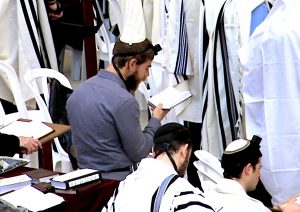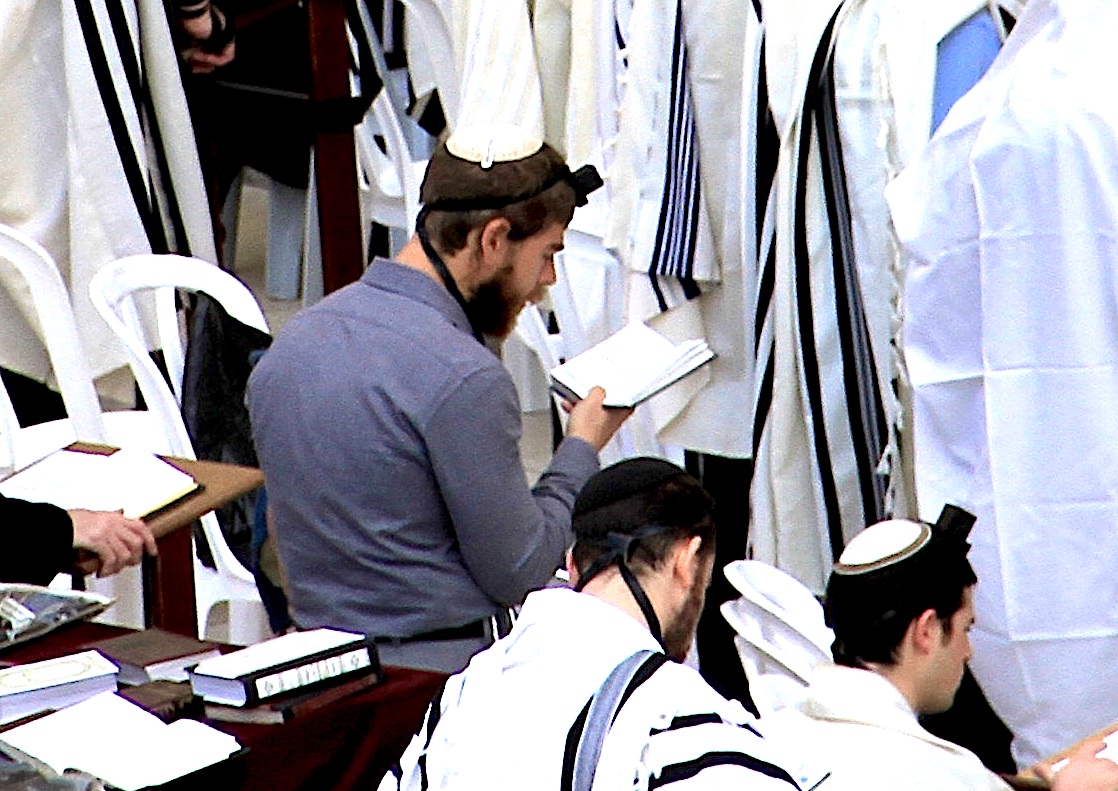
And do not desecrate My Holy Name and I should be sanctified in the midst of the Children of Israel, I am HASHEM. (Vayikra 22:32)
Some things you can only do once, like make a first impression. Giving up one’s life for Kiddush HASHEM seems to be another one. Nathan Hale said, “I regret that I have but one life to give for my country.” Actually, there may be many chances!
There is a principle stated in the Talmud that if one really tries to do a Mitzvah, and due to circumstances beyond his control, he is prevented, then HASHEM considers his good intentions as if he had actually done it. Not everyone is presented with the opportunity to give up their life for HASHEM, but those who “live up” to it, earn the highest reward.
The Rebbe Elimelech, at the very beginning of Tzetel Katan writes the following: These are the matters with which a person should conduct himself and live by them; Every moment when one is free from Torah study, specifically when one is sitting idly alone in his room or lying on his bed and is unable to sleep, he should think of the Mitzva “And they shall be sanctified in the midst of the children of Israel” and place on his soul and picture in his mind as if there were a great awesome fire burning before him to the heart of the heavens, and for the sanctifying of the Almighty’s blessed name that he break his nature and cast himself into the fire for sanctifying His blessed name. And this good thought G-d will consider as if he actually did so. Thus, it is found that one is not sitting or lying idly rather he is fulfilling a positive Torah commandment.
During the first verse of reciting the Shema prayer and the first blessing of the Amidah one should … imagine if all the nations of the world would afflict him with all severe afflictions and flay his skin from his flesh so that he can deny, heaven forbid, His oneness, he should bear all the suffering and not admit to them such, heaven forbid. And he should picture this in his mind and thoughts as if they were doing this to him, and with this, one will fulfill his obligation of reciting the Shema…
It would seem that it is not a one-time opportunity. It is an “all the time” possibility.
The Piaseczno Rebbe, who himself perished in the Warsaw Ghetto “Al Kiddush HASHEM”, writes in Aish Kodesh; “We have a tradition that an individual who undergoes martyrdom to sanctify the Name of God, does not feel the pain of the torments inflicted upon him. The reason for this is that since the individual who is about to be martyred is inflamed with a powerful yearning to surrender his life for the sake of the sanctity of His blessed Name, he raises up all his senses and his entire physical being by means of that fervor to the World of Thought. Eventually he reaches the point where he is entirely vested in thought so that his sensory awareness disappears, while his feeling and corporeality are stripped away so that he feels nothing but pleasure.
Rabbi Akiva was put to death (by the Romans) for Kiddush HASHEM. In fact, his entire life was accompanied by thoughts of self-surrender for Kiddush HASHEM; at the time of his martyrdom, he said “All my life 1 have longed to fulfill the verse ‘And you shall love HASHEM your G-d with all your heart, with all your soul” – That is, even when He takes your life.” It is precisely for that reason that the Mishnah at the end of tractate Yoma quotes him (Rabbi Akiva) as saying: “Happy are you, Israel! Before whom do you purify yourselves? Who is it that makes you pure? Your Father in heaven…
That is, even in your moment of torment you are happy, when you remember that the object of your purification (martyrdom) is your Father in heaven-at that moment your bodily sensations disappear, and you feel no pain.
Even if the chance never arrives one can live their whole life as if they did it. If the terrible occasion should ever arise, then one is ready, and a Jew must be ready! Someone clever said, “Once we know what we are willing to die for then we know what we are living for.” When we are readying ourselves to die for Kiddush HASHEM, then we are simultaneously preparing to live for Kiddush HASHEM.


